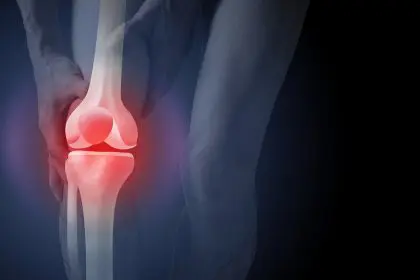Recent medical data shows that unplanned weight loss affects approximately 1 in 20 adults annually, yet many brush off these changes as temporary fluctuations. Understanding the complexity behind sudden weight loss has become increasingly important as medical professionals observe rising cases among diverse age groups.
What defines unexpected weight loss
The first vital aspect medical professionals emphasize is understanding what constitutes unexpected weight loss. Unlike planned dietary changes or increased exercise routines, unexpected weight loss typically involves losing 5% or more of your body weight within 6-12 months without actively trying to shed pounds.
For a 160-pound person, this means dropping 8 pounds or more without changes to diet or exercise habits. This weight change often occurs alongside other physical and emotional changes that might seem unrelated at first glance.
The 5 crucial signs your body’s sending messages
- Physical changes beyond the scale The first indicator extends beyond mere numbers on your bathroom scale. Medical professionals point to changes in how clothes fit, particularly around the waist and shoulders, as early warning signs. Additionally, changes in facial features, such as more pronounced cheekbones or jawline, might appear before significant weight loss registers on the scale.
- Eating patterns and appetite shifts The second vital sign involves noticeable changes in eating patterns. While some individuals might experience decreased appetite, others might find themselves eating normally yet continuing to lose weight. These changes often accompany altered taste preferences or reduced enjoyment of previously favorite foods.
- Energy fluctuations throughout the day The third indicator manifests in how your body manages energy. Unexpected weight loss frequently pairs with significant energy changes – either unusual fatigue or, surprisingly, periods of heightened energy that seem out of character. These fluctuations might affect daily activities, work performance, or exercise routines.
- Sleep pattern disruptions The fourth sign appears in your sleep patterns. Medical professionals note that unexpected weight loss often coincides with changes in sleep quality or duration. Some individuals might experience difficulty falling asleep, while others might wake up frequently or feel unrested despite adequate sleep hours.
- Emotional and cognitive changes The fifth crucial indicator involves shifts in emotional well-being and cognitive function. These changes might include difficulty concentrating, mood swings, or increased anxiety about health and body image. Many individuals report feeling disconnected from their usual emotional responses or experiencing new concerns about their health.
Understanding the body’s complex signals
Medical professionals emphasize that these five signs rarely appear in isolation. Instead, they often interweave, creating a complex pattern of physical and emotional changes that deserve attention. The body’s response to unexpected weight loss involves multiple systems working simultaneously, from metabolic changes to hormonal adjustments.
Recent research highlights how the body’s stress response system plays a crucial role in unexpected weight loss. When weight drops suddenly, the body might enter a state of physiological stress, triggering a cascade of responses that affect everything from appetite to emotional well-being.
The role of medical evaluation
Medical professionals strongly advocate for comprehensive evaluations when unexpected weight loss occurs. These assessments typically involve several key components:
Physical examination: Doctors perform detailed physical assessments to identify potential underlying causes.
Laboratory testing: Blood work and other diagnostic tests help evaluate organ function and identify potential medical conditions.
Medical history review: Understanding recent life changes, medications, and family history provides crucial context for weight loss evaluation.
Creating a balanced approach to recovery
Recovery from unexpected weight loss requires a multi-faceted approach that addresses both physical and emotional aspects of health. Medical professionals recommend several key strategies:
Nutritional support: Working with healthcare providers to develop appropriate eating plans that support healthy weight maintenance.
Physical activity assessment: Evaluating and adjusting exercise routines to ensure they support rather than hinder recovery.
Emotional well-being: Addressing psychological aspects of unexpected weight loss through appropriate support systems.
Long-term monitoring and maintenance
Maintaining stability after unexpected weight loss requires ongoing attention and care. Medical professionals recommend regular monitoring of weight, appetite, and energy levels, along with continued communication with healthcare providers about any new or recurring symptoms.
The journey through unexpected weight loss often reveals important insights about overall health and well-being. By paying attention to these five vital signs and seeking appropriate medical guidance, individuals can better understand and respond to their body’s signals.
Moving forward with awareness
Understanding and responding to unexpected weight loss requires patience, attention, and professional support. The five vital signs serve as crucial indicators that help individuals recognize when their bodies need additional care and attention.
Medical professionals emphasize that early recognition and response to these signs can lead to better outcomes. By maintaining open communication with healthcare providers and paying attention to both physical and emotional changes, individuals can navigate the challenges of unexpected weight loss more effectively.
This comprehensive approach to understanding and addressing unexpected weight loss helps ensure that individuals receive appropriate care and support when their bodies signal the need for attention. Remember, weight changes tell important stories about our health – stories that deserve to be heard and addressed with professional guidance and care.














